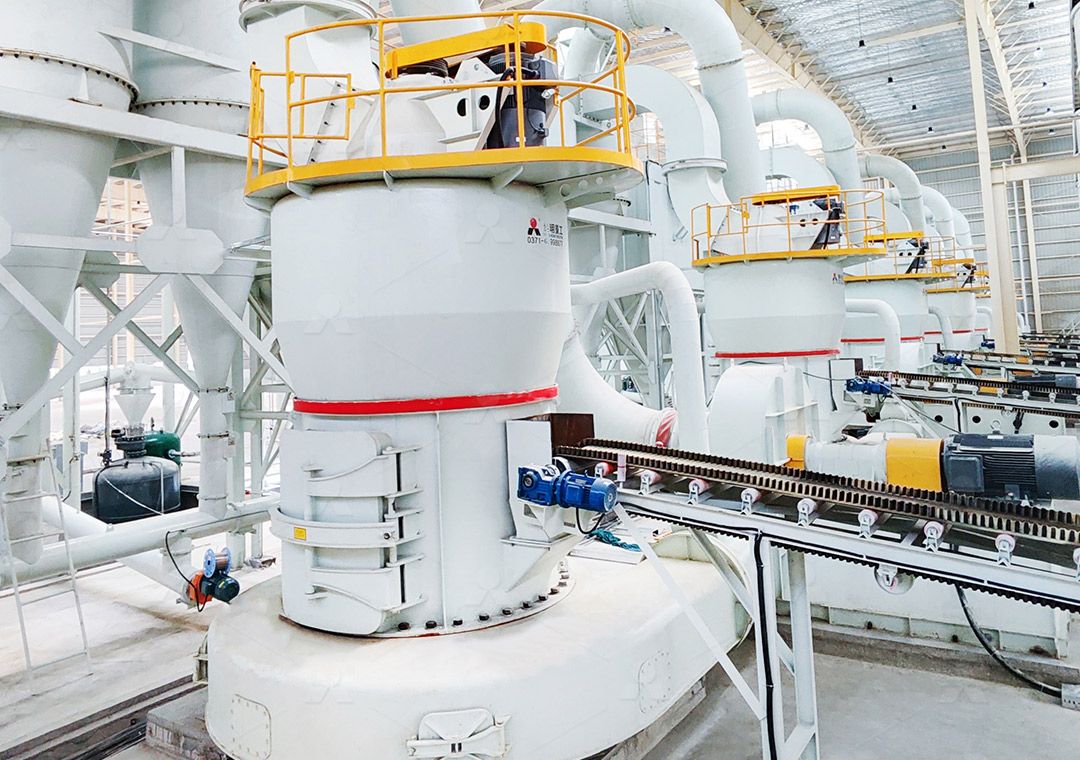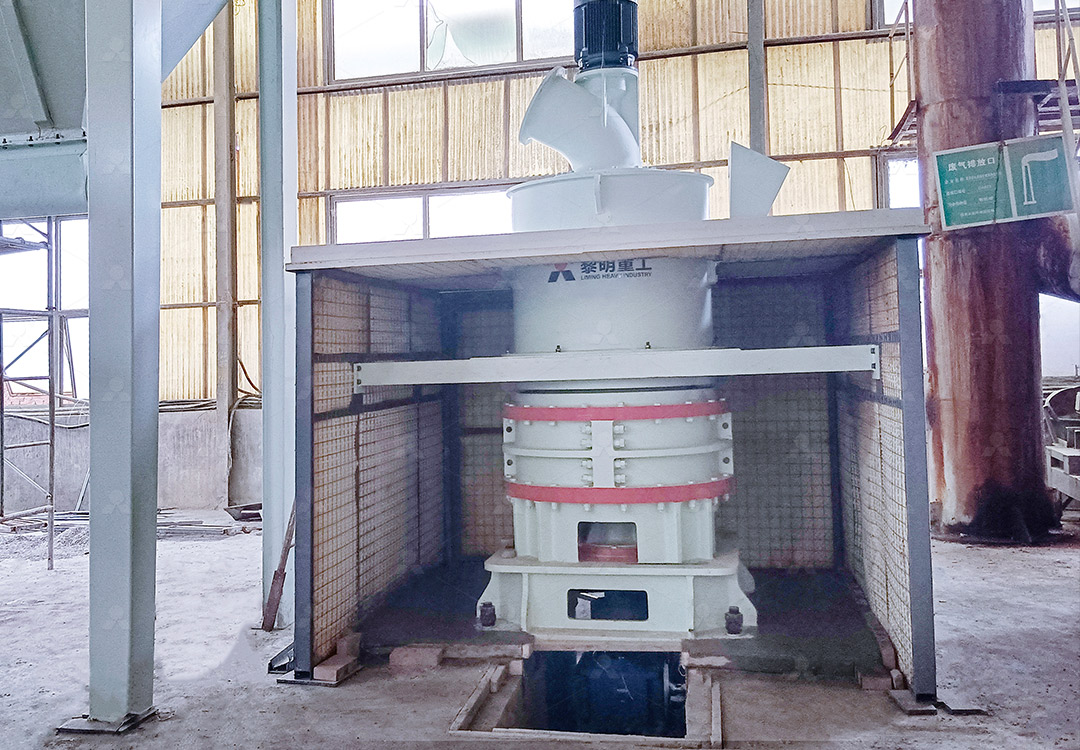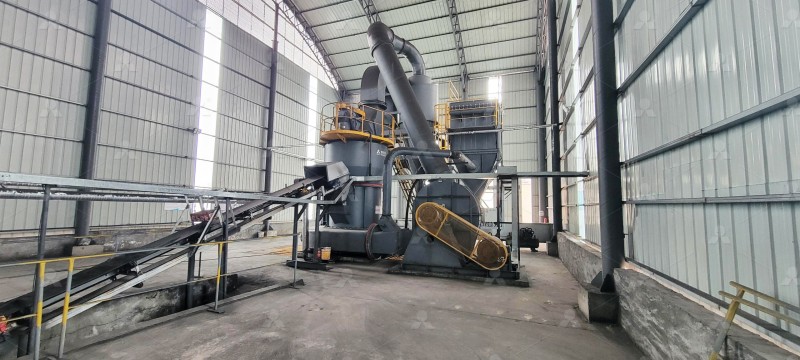Raymond Mill for Barite Powder Processing in Fujian
We provide a wide range of mills — including Raymond mill, trapezoidal mill, vertical mill, ultrafine mill, and ball mill, obtained ISO9001 international quality certification, EU CE certification, and Customs Union CU-TR certification. Suitable for processing minerals such as limestone, phosphate, quicklime, kaolin, talc, barite, bentonite, calcium carbonate, dolomite, coal, gypsum, clay, carbon black, slag, cement raw materials, cement clinker, and more.
The discharge range of these mills can be adjusted to meet specific processing needs, typically from 80-400 mesh, 600-3250 mesh, and can achieve the finest particle size of up to 6000 mesh(D50).
If you are looking for a reliable grinding solution to turn stone or minerals into fine powder, please feel free to contact our online customer service.
Raymond Mill for Barite Powder Processing in Fujian
The mineral-rich province of Fujian has long been a hub for industrial mineral processing, with barite standing out as one of its most valuable resources. For decades, processing plants throughout the region have relied on various grinding technologies to transform raw barite ore into high-value powder for applications ranging from oil drilling muds to pharmaceuticals and plastics.
Traditional grinding approaches, while functional, often presented challenges in efficiency, product consistency, and environmental compliance. Many operations struggled with excessive energy consumption, inconsistent particle size distribution, and dust control issues that impacted both operational costs and environmental stewardship.

The Evolution of Barite Grinding Technology
As barite applications became more sophisticated, the demand for precisely controlled particle sizes and higher purity products intensified. This drove innovation in grinding technology, particularly in the development of more advanced milling systems capable of delivering superior performance with reduced environmental impact.
Modern barite processing requires equipment that can handle the mineral’s moderate hardness (3-3.5 on Mohs scale) while producing powders with consistent characteristics. The ideal grinding solution must balance production capacity with energy efficiency, while maintaining strict control over particle size distribution and minimizing contamination.
Advanced Solutions for Modern Barite Processing
Among the technological advancements transforming barite processing in Fujian, our MW Ultrafine Grinding Mill represents a significant leap forward. This innovative equipment processes materials with input sizes up to 20 mm and delivers production capacities ranging from 0.5 to 25 tons per hour, making it ideally suited for medium to large-scale barite operations.
The MW series stands out for its exceptional energy efficiency, consuming approximately 30% less energy compared to conventional jet mills while increasing production capacity by up to 40%. Its advanced cage-type powder selector, incorporating German technology, enables precise fineness adjustment between 325-2500 meshes, with the remarkable capability to achieve d97≤5μm in a single pass.

For operations requiring even higher precision, our LUM Ultrafine Vertical Grinding Mill offers complementary capabilities with its input size of 0-10 mm and capacity of 5-18 tph. This system integrates the latest Taiwanese grinding roller technology with German powder separating technology, providing exceptional control over product characteristics.
Environmental and Operational Advantages
Both the MW and LUM grinding mills incorporate sophisticated environmental protection features that align with Fujian’s stringent environmental regulations. The integrated pulse dust collection systems effectively capture particulate matter, while advanced muffler technology significantly reduces operational noise levels.
The unique design of these mills eliminates rolling bearings and screws within the grinding chamber, addressing common failure points that often plague conventional grinding equipment. This design philosophy extends to external lubrication systems that enable maintenance without production interruptions, supporting continuous 24-hour operation that maximizes plant productivity.

Implementation in Fujian’s Barite Sector
Multiple barite processing facilities across Fujian have successfully integrated these advanced grinding systems into their operations. The results have been transformative—significant reductions in energy consumption, improved product quality consistency, and enhanced environmental compliance.
One particular operation in Nanping reported a 35% reduction in power consumption while simultaneously increasing production output by 28% after transitioning to modern grinding technology. The consistent particle size distribution achieved has enabled the facility to command premium prices in specialty chemical and pharmaceutical markets.
Frequently Asked Questions
What makes the MW Ultrafine Grinding Mill particularly suitable for barite processing?
The MW Mill’s combination of high efficiency grinding curves, precise particle size control, and robust construction makes it ideal for barite. Its ability to produce powders between 325-2500 meshes with high throughput and low energy consumption addresses the specific requirements of barite processors.
How does the environmental performance of modern grinding mills compare to traditional equipment?
Contemporary grinding systems feature integrated pulse dust collectors and advanced noise reduction technology that typically reduce dust emissions by over 99% and decrease operational noise by 20-30 decibels compared to conventional mills.
What maintenance advantages do these grinding systems offer?
The elimination of rolling bearings and screws in the grinding chamber, combined with external lubrication systems, dramatically reduces maintenance requirements and enables lubrication without shutdowns, significantly improving operational availability.
Can these mills handle variations in barite ore quality?
Yes, both the MW and LUM mills are designed with adjustable operating parameters that allow operators to compensate for variations in feed material characteristics, ensuring consistent product quality despite natural variations in raw barite ore.
